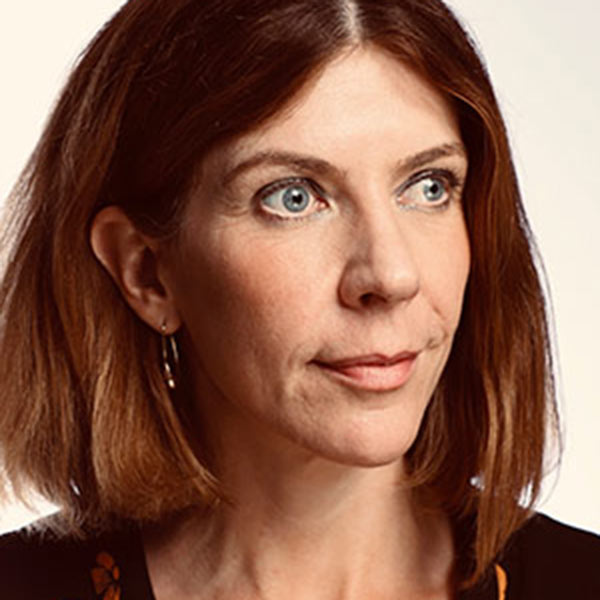
Alison Taylor, who recently joined BSR as our new energy and extractives director, previously worked for many years with Control Risks and Transparency International, helping companies and their stakeholders operate successfully, reduce risk, and maintain integrity. For the former, she helped companies in the Americas, Africa, and the Middle East operate with integrity in high-risk, complex markets. With energy and extractives companies, her work focused on strategic intelligence, risk management, market entry, stakeholder engagement, ethics, and anticorruption.
Here, she tells us about her background, her vision for BSR’s energy and extractives practice, and her views on the industry’s role in building an inclusive, low-carbon economy.
Much of your experience has been in creating ethical environments and building transparency, especially in arenas where this can be a challenge. Tell us a bit about this work and how it informs your approach to sustainability.
My work in anticorruption consulting convinced me that it is essential to move beyond compliance processes and internal controls and reconsider ethics and values across the entire organization, via a focus on sustainability. This has led me to focus on organizational culture and change management as a means to help companies operate ethically in an era of hyper-transparency.
My work helping companies create and maintain an ethical culture fits well within the context of sustainability, as it is a long-term, transformational effort designed to maintain a company’s contract with society and the environment. In some ways, sustainability is still treated as a niche activity, a bolt on to the core activities of a company, but this perspective is becoming increasingly outdated. Sustainability is synonymous with innovation, and really the only option given the challenges society faces. It just makes good commercial sense.
What is your vision for BSR’s energy and extractives practice?
BSR has deep experience in the energy and extractives sector and does amazing, innovative work in human rights, strategy and integration, stakeholder engagement, and sustainable communities in particular. We develop strategic sustainability frameworks at the head office level, and then ensure they are implemented consistently and effectively on projects in some of the world’s most challenging environments.
The evolving dynamic between head office and remote locations, and the balance between global consistency and local relevance, are things all companies struggle with. BSR has the experience and credibility to ensure that companies manage these above-ground risks effectively and protect members’ investments and reputations over the long term.
We are also working with energy and extractives companies to increase the effectiveness and transparency of supply chains; to engage constructively with investors, customers, and the public when it comes to concerns over climate change; to improve sustainability reporting; and also to address the new challenges posed by transparency, inequality, and political risk.
I’d like to build on this experience and use it to promote discussion and debate within the sector, which is responding to transformational change in its operating environment. I also see great potential for collaborative initiatives and knowledge-sharing in these core areas.
In your view, what are the biggest opportunities for the sector this year?
This is a hugely challenging time for the energy and extractives industry. The precipitous drop in commodity prices, combined with the growth of investor activism and public concern around climate change, have created a perfect storm for the industry. The idea that working in extractives is synonymous with reputational risk is gaining momentum, just as the commercial environment is more difficult than it has been for several years.
However, any period of great disruption also brings opportunities. For company leaders who can step back and consider the big picture, this is a chance to reconsider fundamental strategy and commercial priorities. This is not easy, given that our entire market system is built on quarterly reporting, investor sentiment, and short-term thinking. But for energy and extractives companies that can move decisively toward sustainability throughout their entire business model, the long-term rewards will be enormous.
Some companies will be unable or unwilling to respond to the shifts in the environment, so I think we will see a variety of approaches to the sustainability challenge. The stakes are high, and there will be winners and losers. For the companies that get it right, the commercial rewards should be very high.
BSR is focused on two major themes as an organization: working with business to build climate resilience and to create an inclusive economy that works for all people. How are these issues relevant to the energy and extractives industries?
The energy and extractives industries are core participants in the ongoing conversation about climate change. At BSR, our approach is to engage members in constructive discussions on how to reduce their climate impacts and build resilience, regardless of what stage they are at. We participate in collaborative initiatives to help reduce the environmental risks of working in natural gas and to reduce greenhouse gases globally.
For energy and extractives companies, this is about adapting business models to satisfy the evolving needs of corporate customers, investors, and the public. These are challenges of organizational change and innovation. They also require making clear-headed commercial decisions in the face of considerable pressure and with limited information about what the future holds. But the stakes have never been higher.
When it comes to building an inclusive economy, for these companies, that means responding to challenges of inequality, corruption, and social engagement. And given their level of engagement with communities, the energy and extractives industries are frequently ahead of the curve in these areas. These companies often face high corruption and human rights risks, and they have some of the most innovative approaches to ethics and transparency that I have seen. However, the corruption debate continues to evolve, and the new focus on individual accountability and transparency in the face of a massively challenging regulatory environment requires constant adaptation.
Similarly, community engagement is an area where many companies have seen the commercial benefits of maintaining a license to operate via engagement with local stakeholders, promoting human rights, access to healthcare, and so on. But there is an ongoing conversation to be had about the nature and limits of corporate responsibility, the role of the private sector in addressing social pressures, and the challenges of stakeholder engagement. Inequality is increasing, and it is driving political and social instability. Energy and extractives companies can take a leading role in addressing these challenges, in knowledge-sharing, and in helping other industries adapt. This is a conversation about risk and opportunity.
BSR’s latest sustainability insights and events straight to your inbox.
Let’s talk about how BSR can help you to transform your business and achieve your sustainability goals.
